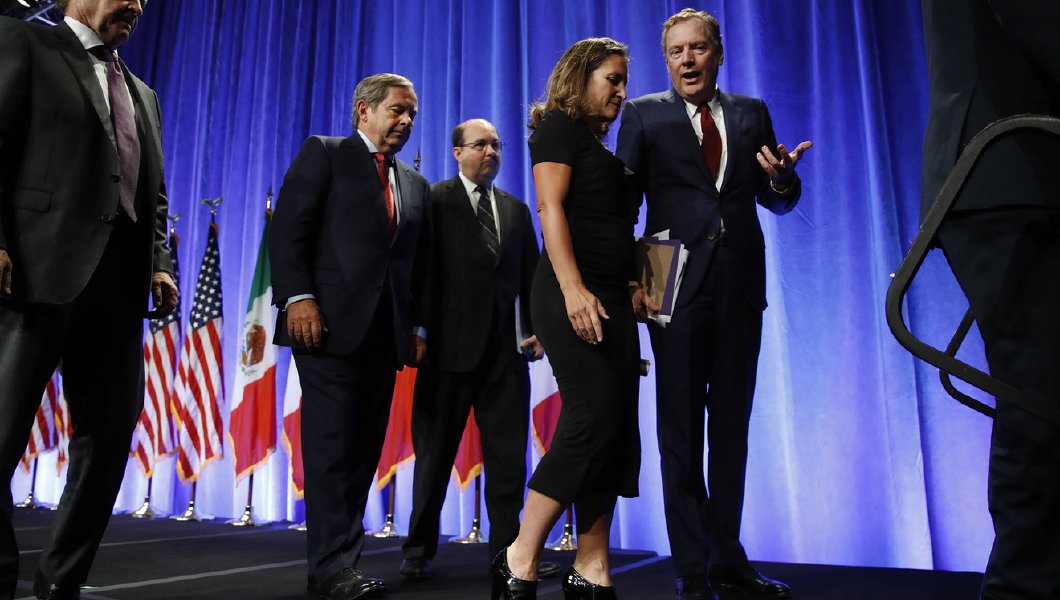Canada says ’hard no’ on changing NAFTA dispute resolution
Washington Examiner | 29 Aug 2017
Canada says ’hard no’ on changing NAFTA dispute resolution
by Sean Higgins
Canada will oppose any effort to change the investor-state dispute resolution system in the North American Free Trade Agreement, imperiling the Trump administration’s efforts to fundamentally change the trilateral trade deal.
U.S. Trade Representative Robert Lighthizer has proposed allowing the three member countries, the U.S., Mexico, and Canada, to voluntarily opt in to the dispute resolution system known as ISDS. The system has international panels of arbiters adjudicate complaints between businesses and foreign countries. Lighthizer instead has suggested having the nation’s own courts hearing the disputes. The proposal has roiled the talks, which began in Washington this month.
It may be a moot issue however, as a source in the Canadian government with knowledge of the negotiations told the Washington Examiner that the government would refuse any changes to the existing system.
"It would be something we couldn’t accept," the source said, adding that was "a pretty hard no." The source said the proposal "would effectively nullify" the entire dispute resolution system, which neither the Canadian government nor its industries wanted.
The source added that major changes to NAFTA "would have to be by consensus" for the deal to abe amended. So, Canada’s opposition likely will kill Lighthizer’s proposal.
The resistance is apparently aggravating the White House. In a tweet Sunday President Trump said, "We are in the NAFTA (worst trade deal ever made) renegotiation process with Mexico & Canada. Both being very difficult, may have to terminate?"
A representative for the Trade Representative’s Office said the office would not comment.
The NAFTA tribunal system, and others like it, works like this: If a business thinks it has been harmed by a country’s action, it can request that a tribunal be formed. The business picks one arbiter, the country picks a second, and they jointly agree on a third. The tribunal then presides over the case and issues a binding ruling much like a regular court.
Should the opt-in provision be included in the new version of NAFTA, the U.S. likely would opt out while Mexico and Canada would stay in, experts believe. Under that scenario, a Mexican company, for example, wouldn’t be able to contest a U.S. policy to an arbitration panel under NAFTA, but a U.S. company could contest a Mexican one.
Since U.S. companies are mainly concerned about protecting their investments overseas, not opting in to ISDS may be palatable to many. The American Automotive Policy Council, whose members include General Motors, Ford and Fiat Chrysler, called for the U.S. to abandon ISDS in a comment filed with the Trade Representative’s office in June. "The vast majority of U.S. companies doing business in Mexico and Canada have not used or benefited from the ISDS provisions, while the inclusion of ISDS raises significant concerns for other stakeholders," it said.
Nevertheless, keeping the system intact was one of the key requests of other business groups. The news that the U.S. was considering altering the system prompted a joint letter last week to Lighthizer and others at the administration from heads of the Chamber of Commerce, the Business Roundtable, and the National Association of Manufacturers. They said retaining ISDS was a matter of "critical importance."






